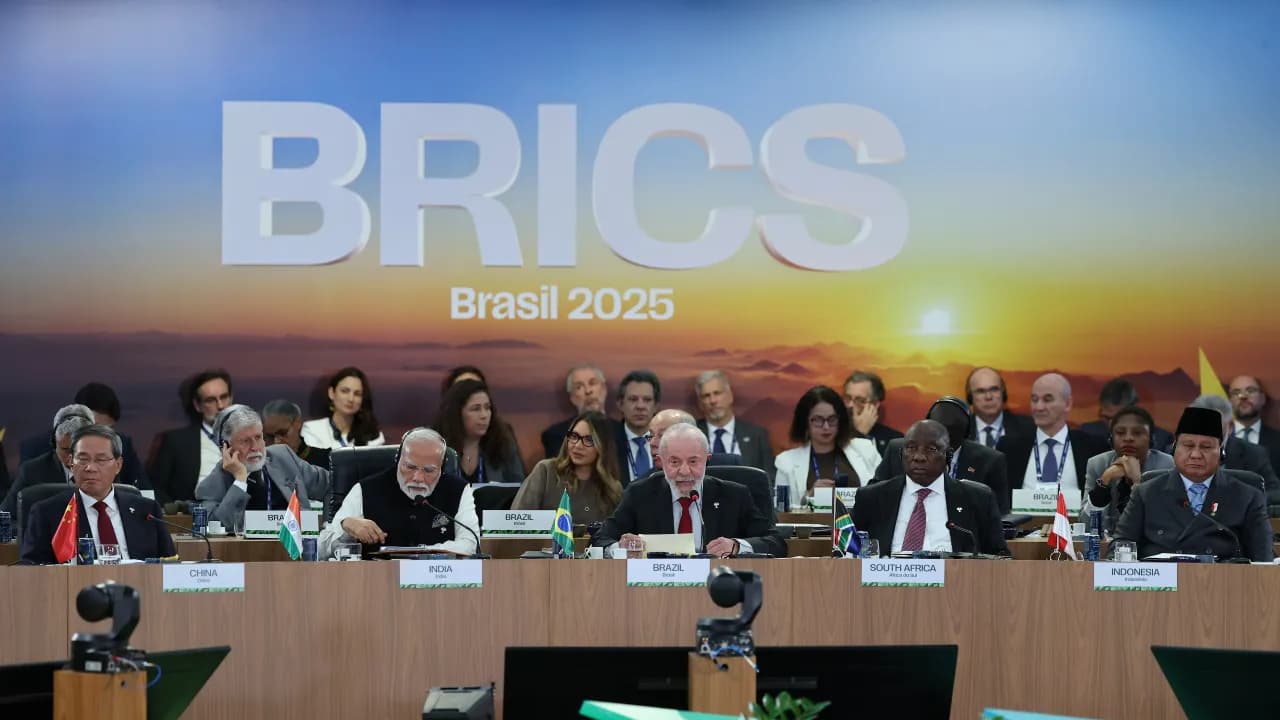With a BRICS summit set to discuss tariffs, the U.S. hardened its rhetoric, accusing India of enabling Russia through discounted oil trades.
US-India trade tensions remain in the spotlight after U.S. President Donald Trump took to his platform, Truth Social, on September 1 to publicly criticize the trade imbalance between the two countries. He described the economic relationship as “a totally one-sided disaster” where India sells large volumes of goods to the U.S. while buying very little in return.
Trump expressed frustration that, despite India’s recent offer to cut tariffs on American goods to zero, it was “too late now” to reverse the new duties, which target key Indian exports such as textiles, gems, footwear, and machinery, but spare pharmaceuticals and electronics. He also condemned India’s continued purchases of Russian oil and military equipment as a strategic complication and part of the rationale for the stiff tariffs.
The tariff situation between India and the United States has reached a critical juncture. Effective August 27, the U.S. imposed a sweeping tariff increase on Indian exports, effectively raising duties to 50% on a wide range of goods. This includes a base tariff plus an additional 25% penalty tied to India’s continued imports of Russian oil, reflecting the Trump administration’s stance on addressing what it terms the “threats” posed by India’s energy policies.
Trade Criticism Sharpens
US Treasury Secretary Scott Bessent and Trade Advisor Peter Navarro have sharpened the rhetoric. Bessent accused India of pocketing around $16 billion by buying discounted Russian oil and exporting refined fuel, alleging that a few wealthy Indian families profited at public expense. Navarro condemned India as a “massive refining hub and oil money laundromat for the Kremlin,” disparagingly suggesting “Brahmins” were the beneficiaries.
India, however, has pushed back. Oil Minister Hardeep Singh Puri defended India’s Russian imports, calling them a stabilizing force for global oil prices and dismissing “laundromat” accusations as unfounded.
Focus Shifts To BRICS Meet Next Week
In a demonstration of unity among developing economies, Brazil’s President Lula Da Silva will host a virtual BRICS summit next Monday to discuss these tariff issues amid rising global trade tensions. The U.S. recently raised Brazil’s tariffs to 50% in response to the political turmoil associated with Bolsonaro.
Meanwhile, Donald Trump is scheduled to address the nation from the Oval Office later today. Investors will be watching for any announcements that might influence trade and market dynamics.
For updates and corrections, email newsroom[at]stocktwits[dot]com.<
